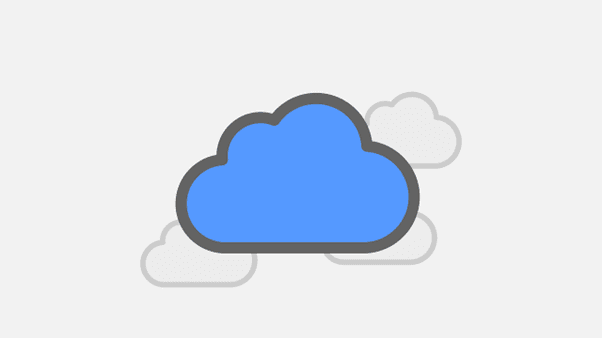
Cloud environments continue to gain in popularity as companies recognize the inherent advantages. Cloud solutions have quickly become the darlings of technology today and combine innovative tech with organizational needs seamlessly. Unfortunately, compliance issues arise for organizations when not meeting required technical and legal standards, potentially incurring heavy fines and increased scrutiny from regulators; businesses must navigate a complex compliance landscape that includes HIPAA and PCI DSS mandates among others.
Cloud Compliance
Cloud Compliance involves adhering to data protection, privacy, and security laws and standards. Compliance in cloud environments presents additional security challenges due to geographic data distribution; making compliance even more complex.
- Compliance in the cloud typically involves:
- Safeguard your data both during transit and at rest
- Maintaining Data Residency by Access Control and Audit Trail
- Regular assessments: to demonstrate adherence and evaluate progress.
Shared Responsibility Model
One of the key concepts in cloud compliance, Shared Responsibility Model is one of the cornerstones. This diagram illustrates how cloud providers and customers divide up compliance responsibilities between themselves.
- Cloud Service Provider (CSP): These providers are accountable for offering cloud services while also safeguarding infrastructure and networks.
- Client: is responsible for safeguarding access management, data storage, user configurations and other forms of sensitive information.
Many organizations mistakenly believe that hiring a cloud-based service provider will transfer compliance responsibility. Unfortunately, this is simply not true.
Compliance Regulations
Compliance can differ significantly across nations. In order to remain compliant, it's vitally important that an understanding is gained as to where data originates and the countries they pass through.
General Data Protection Regulations (GDPR)
It is an all-encompassing privacy law applicable to organizations worldwide who process personal data of European Union (EU) citizens - regardless of physical location.
Considerations specific to cloud environments:
Make sure that all data is stored in accordance with EU law.
- Empowering data subject rights.
- Strong encryption should be an essential requirement of all businesses.
- Maintaining breach notification protocols
HIPAA (Health Insurance Portability and Accountability Act of America)
This is the law designed to safeguard patient information in America. HIPAA regulations apply to any cloud-based system which stores or transmits this sensitive data (ePHI).
Considerations of Cloud Storage Solutions
- Cloud providers that comply with HIPAA can be utilized.
- Create Business Associate Agreements
- Encrypting electronic Personal Health Information during storage and transmission
- Implementing stringent audit trails and access logs
Payment Card Industry Data Security Standard
Organizations that store, process or transmit credit card data must abide by compliance regulations; cloud hosts must meet PCI DSS core requirements.
Considerations specific to cloud environments:
- Tokenization of payment data and encryption
- Cloud environments: Network Segmentation.
- Schedule regular vulnerability scans and penetration testings.
Federal Risk and Authorization Management Program - US
Providers must undergo a rigorous evaluation process in order to provide federal agencies with a standard set of protocols they can rely on when operating cloud-based systems.
- Considerations: For vendors working with U.S. Government agencies, compliance is of utmost importance.
- Protocols for handling, encryption and physical security protocols
ISO/IEC 27001 is an internationally recognized standard for cloud compliance.
- Regular Risk Evaluations
- Recorded Policies & Procedures (PO&Ps).
Access Control and Incident Response Protocols.
Maintaining Cloud Compliance
Complying with cloud regulations takes more than simply ticking items off a checklist - it requires careful thought and planning, with best practices providing an opportunity to stay ahead of any potential problems.
Audits of Compliance
Compliance audits can be an excellent way to keep your infrastructure compliant, helping you identify and address any deficiencies more easily.
Robust Access Control
By applying the principle of least privilege (PoLP), organisations provide users with only access to resources they require. Multi-factor authentication adds another layer of protection by adding multi-factor authentication into your organization's data security setup.
Data Encryption
All data, whether at rest or during transport, must be encrypted using TLS and AES 256 protocols in order to remain compliant and remain within compliance requirements.
Comprehensive Monitoring
Alerts generated from audit logs and real time monitoring help facilitate compliance and response in real time.
Assuring Data Residency
No matter where you store your data, certain jurisdictional requirements must be fulfilled by its storage center. Make sure they adhere to local laws.
Train Your Employees
No matter how strong the security is in your organization, just one employee clicking could cause havoc to spread throughout. Training users is key to protecting digital assets while remaining compliant.
As your company expands and adopts cloud systems, compliance becomes ever more essential. Reach out to us if you're ready to enhance cloud compliance - our IT professionals have years of experience helping businesses navigate compliance challenges, manage risks, and thrive in today's ever-evolving digital environment. Reach out to us today! 📞 (404) 932-5940 📧 info@nuwaveitc.com 🌐 www.nuwaveitc.com





